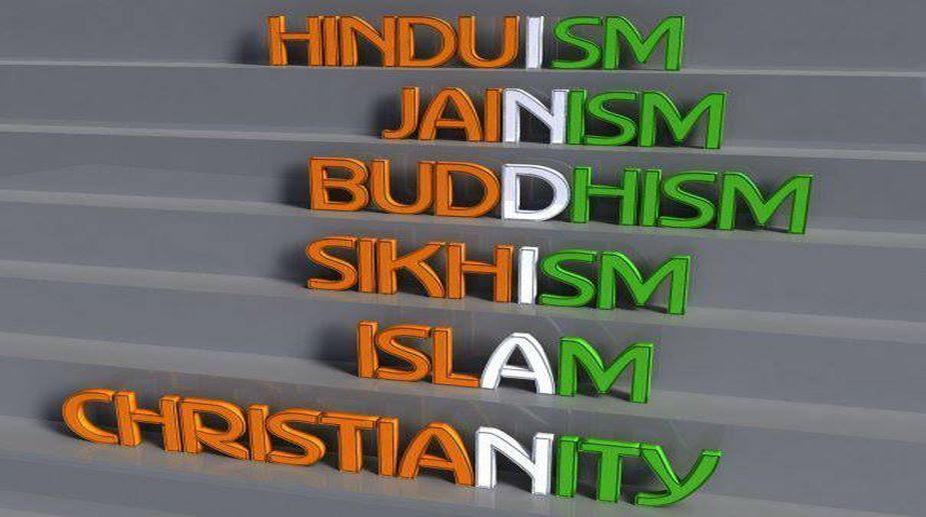Advani accepts ‘Bharat Ratna’ with humility and gratitude
''Today I gratefully remember two persons with whom I had the honour of working closely--Pandit Deendayal Upadhyaya and 'Bharat Ratna' Atal Bihari Vajpayee,'' he said in a statement.

Secularism (FACEBOOK)
Step aside Lal Krishna Advani, your pet-phrase “pseudo-secular” is passé. As overtaken by events as your repeated insistence in Parliament and elsewhere, that India would never become a Hindu Rashtra. The new generation in the party Advani founded finds little need to camouflage core intentions, and to an extent may be lauded for shedding the hypocritical veneer of being inclusive.
In keeping with the contemporary practice of coining catch-words, Devendra Fadnavis has added a new angle to the political construct ~ Secular Hindutva. While lexicographers might be hard-pressed to determine if that is a paradox, oxymoron or something else ~ political pundits see no mystery to unravel in the term. It suggests a cementing of all majority-community political forces to demolish debilitating “secularism” ~ and maybe to have that concept exorcised from the preamble to the Constitution of India.
The apex court has already ruled on ‘Hindu’ and what that means, but the line taken by the BJP’s blue-eyed-boy from Maharashtra takes things to a fresh level, and completes the line of attack that deems Muslim and Pakistani as synonymous, advises those who relish eating beef to “go westward” across the Radcliffe Line and divides society into Ramzadas and haramzadas. The kid gloves have been discarded, the Orbat (order of battle) for 2019 clearly projected.
Advertisement
To slam that as “polarisation” would be putting it politely, a new umbrella concept is being floated to consolidate the majority vote. That gambit may have been made in the immediate context of assuaging strained relations with the Shiv Sena, but Fadnavis’ doctrine could well be perceived as futuristic, and a blip on the early-warning radar of those seeking electoral favour without sinking to play religious cards.
It was in an interview with Sanjay Raut (a Shiv Sena member of the Rajya Sabha) for Saamna that Fadnavis propounded his ‘Secular Hindutva’ theory, but only the charitable would perceive that in a limited context. Much of the interview was offering alibis for why the parties were drifting apart, but in typical BJP fashion it was the Sena that was to blame.
The fallout of the interaction is yet to manifest itself, yet Raut must be commended for asking tough “professional” questions: not too many would accept Fadnavis’ contention that the party was not remote-controlled by the Modi-Shah duo, that the leadership had cautioned against populist announcements that were difficult to implement, or that crime had been curbed in the state.
Yet when viewed in a wider perspective, the real “talking point” would be the dangling of the ‘Secular Hindutva’ carrot. Wary that some of its smaller allies are unhappy at being taken for less-than-granted the BJP is attempting its own brand of outreach ~ suggesting that not to link up with the party would be anti-Hindu. It has already conflated Hindu with Indian.
Advertisement